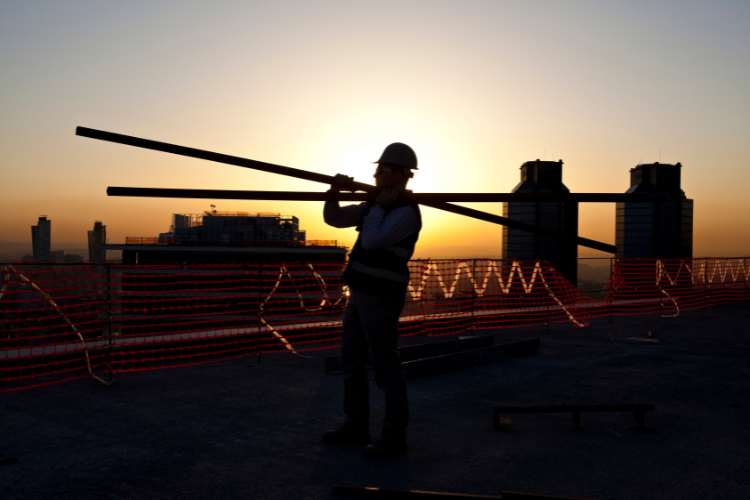NFPA 72, the National Fire Alarm and Signaling Code, is crucial for electrical subcontractors planning to install or maintain fire alarm systems, as it provides guidelines for ensuring the proper design, installation, and maintenance of these systems. State law prohibits the occupation of any building until the required fire alarm and detection system has been tested and approved, making it essential for electrical subs to maintain an updated knowledge of these requirements. Here, we’ll discuss the key provisions of NFPA 72 and how it helps ensure fire alarm systems’ effectiveness in protecting people and property.
Table of Contents
What is NFPA 72?
NFPA 72, also called National Fire Alarm and Signaling Code, is a comprehensive standard for the installation, application, testing, performance, inspection, and maintenance of fire alarm and emergency voice systems, including mass notification systems (MNS) in buildings across the country. It dictates how fire alarm systems and other devices are designed, installed, tested, and maintained after a designer determines that fire protection safety measures are required.
The code is published by the National Fire Protection Association (NFPA) every three years and is widely adopted by states and local municipalities across the United States as a standard for enforcing fire code regulation.
What Is the Purpose of NFPA 72
The NFPA 72 is used by electrical subcontractors, builders, architects, engineers, and inspectors as a reference when installing and maintaining fire alarm systems in new and existing buildings. This is to ensure that they effectively detect and alert people to the presence of fire.
In addition to its primary focus on fire alarm systems, the Code includes requirements for mass notification systems that may be used in emergencies such as weather emergencies, terrorist events, and biological, chemical, and nuclear emergencies.
The code applies to residential and commercial buildings and is intended to protect the lives and property of building occupants. As a subcontractor working on a construction project, it is important to be familiar with the requirements of NFPA 72 to ensure you provide the best workmanship for your clients.
What Are The Primary Sections of the NFPA 72?
NFPA 72 is divided into chapters, each covering all the information and requirements for a specific aspect of fire alarm systems and their design, installation, and maintenance. Some of the primary sections of the code are:
Administration and General Requirements: Covers the code’s scope, purpose, and application.
Definitions: Provides definitions of terms used throughout the code.
Documentation: Includes requirements for maintaining design documents that indicate the pathway class and survivability level designations.
Circuits and Pathways: Covers where the fire alarm circuit pathways should be installed and their survivability level.
Emergency Communications Systems: Covers the requirements to ensure that emergency communications systems are properly integrated with the fire alarm system and can function effectively during an emergency.
Cybersecurity: Includes guidance and requirements to address cybersecurity for equipment, software, firmware, tools, and installation, as well as physical access and security.
Initiating devices: Covers requirements for when remote indicators are required.
Notification Appliances: Covers the design, installation, and maintenance of devices that notify a fire, such as horns, bells, and visual signals.
Emergency Control Function Interfaces: Covers the design, installation, and maintenance of appliances and devices that allow fire alarm systems to communicate with other critical building systems during a fire emergency to ensure the safe evacuation of occupants.
What are the NFPA 72 requirements?
Some of the key requirements of NFPA 72 include the following:
Personnel qualifications
The facility must ensure that only individuals who have received proper training and are competent can perform testing, inspection, and maintenance on its fire alarm system. NFPA 72(10), Sec.10.4.3].
System History
The facility must provide a “record of completion” form before authorities approve installing or modifying a fire alarm system.
Notifications
All relevant parties should be notified before any scheduled fire alarm system testing takes place to avoid unnecessary response from occupants and potential injury to emergency response personnel. Building occupants and the monitoring company or agency should be kept informed.
System modifications
According to NFPA 72(10), Sec. 14.4.1.2, reacceptance testing is required after
- Any addition or deletion of system components
- Modification, repair, or adjustment to system hardware or wiring
- Change to site-specific software.
Inspections
Semiannually
Some fire alarm system components need to be visually inspected semiannually according to NFPA 72(10), Table 14.3.1. These checks include the following:
- Making sure control unit trouble signals are visible
- Making sure remote annunciators are in good condition
- Making sure initiating devices are in place, not blocked, and not damaged
- Making sure notification appliances are not blocked and not damaged -making sure Magnetic hold-open devices are not damaged and work properly.
Annually
According to Chapter 14 of NFPA 72, an approved servicing company must thoroughly inspect, test, and maintain the system every year.
Where does NFPA 72 apply?
NFPA 72 applies on a national level and is adopted by many states and local jurisdictions. It is important to check your local codes before installing a fire alarm system to ensure you follow all of the requirements.
What is the difference between NFPA 70 and NFPA 72?
NFPA 70, or the National Electrical Code (NEC), is a code for installing and maintaining electrical systems in buildings. It covers topics such as proper wiring techniques and safety measures to be taken when working with electricity.
On the other hand, NFPA 72 is a code specifically for fire alarm systems. It covers design requirements, installation techniques, and maintenance procedures. The two codes are related in that the electrical system of a fire alarm must adhere to the NEC and NFPA 72.
Although NFPA 70 and NFPA 72 are separate entities, they provide essential building safety standards. By following these codes when installing or maintaining an electrical system.








